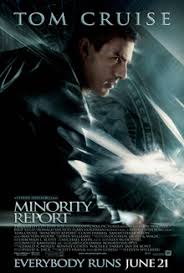Exploring the Implications of Minority Report in Policing

The Importance of Predictive Policing
The concept of predictive policing has gained significant traction in recent years, drawing inspiration from the science fiction film “Minority Report.” This film, released in 2002, imagines a future where crime can be predicted and prevented before it occurs, raising important ethical and practical questions about the intersection of technology and law enforcement.
Current Developments in Predictive Policing
In 2023, various police departments across North America have been implementing predictive policing software. These systems utilize algorithms to analyze crime data and identify patterns, aiming to anticipate where crimes are likely to occur. For instance, cities like Los Angeles and Chicago have rolled out these technologies, highlighting both their benefits and potential downsides.
Cases of Implementation
Los Angeles has seen an increase in public safety through the use of its predictive policing initiative, “PredPol,” which identifies high-risk areas for specific types of crime. However, controversies surrounding bias in algorithms have led to heightened scrutiny. Critics argue that these systems can disproportionately target minority communities, reminiscent of the moral dilemmas presented in “Minority Report.” Chicago’s data-driven policing efforts have also sparked debates over civil liberties and racial profiling.
Ethical Considerations
Experts in both technology and law enforcement are cautioning against the uncritical adoption of predictive policing. The risks of false positives, where individuals are mistakenly identified as potential offenders, pose significant ethical challenges. The concept of “pre-crime” as depicted in “Minority Report” raises questions about free will and the justice system’s integrity.
Conclusion: The Future of Predictive Policing
The future of policing is undoubtedly being shaped by technological advancements, but the lessons drawn from “Minority Report” should serve as a guiding point for development in this area. Policymakers must strike a balance between leveraging data for public safety while protecting individual rights and ensuring that systems are transparent and held accountable. As more cities experiment with these technologies, ongoing public dialogue and ethical oversight will be crucial to avoid the pitfalls imagined in the fictional realm of “Minority Report.”









